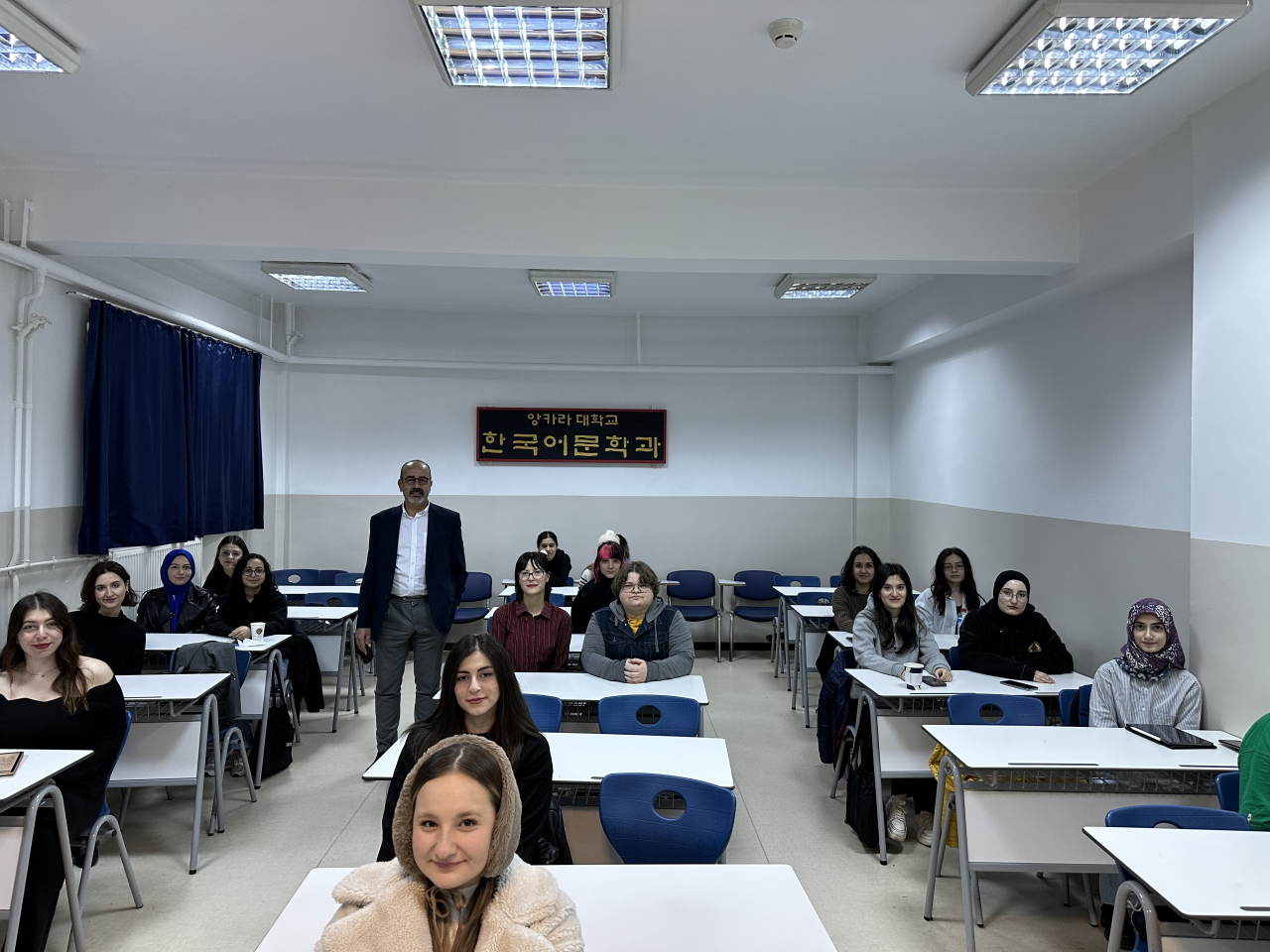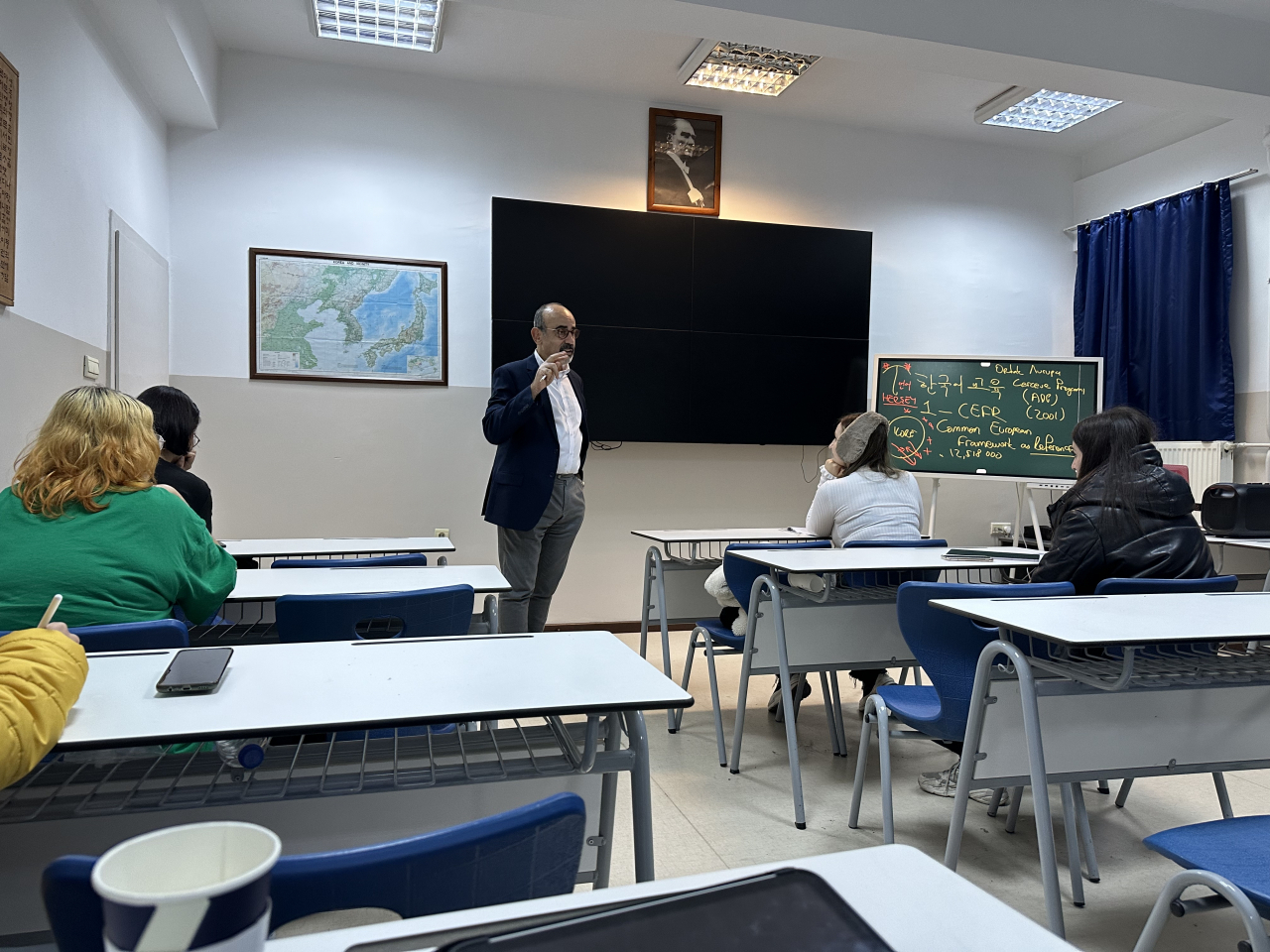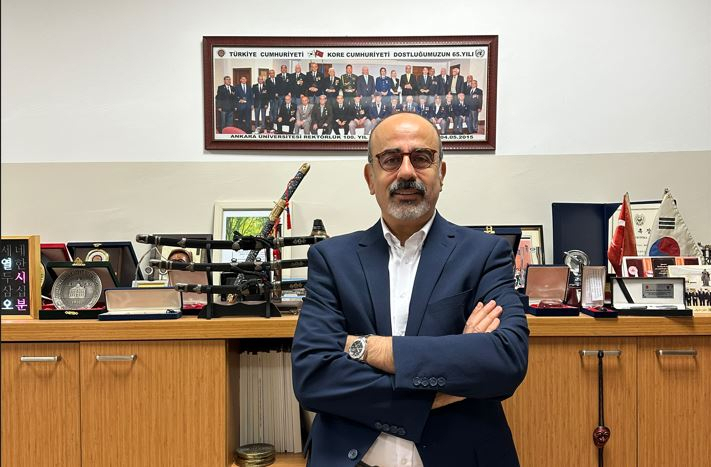[Korea Beyond Korea] Korean studies in Turkey grows on foundation of strong relations
Turkey's first Korean studies department at Ankara University calls for greater support from Korea for research programs
By Yoon Min-sikPublished : Nov. 27, 2023 - 16:22

Despite being on the opposite sides of the continent, South Korea and Turkey have maintained a positive relationship throughout their histories. Turkey sent the fourth-highest number of troops during the 1950-53 Korean War, and it was among the first countries to establish diplomatic ties with Korea in 1957.
During the 2002 FIFA World Cup, Korean fans celebrated the Turkish team’s accomplishments as well as their own as the two nations beat the odds to reach the semifinals.
With the growing status of Korea on the international stage, there is a substantial level of interest among the Turkish people in what is described as their “blood brother” nation.
“(Turkey's) advantage in Korean studies, from the early years of our department to the present, lies in the special feelings that Turks harbor toward Korea. Particularly, the interest of the generation in their 40s and 50s, as well as the high level of interest among young people,” said Mahmut Ertan Gokmen, the head of Ankara University’s Department of Korean Language and Literature, in an email interview with The Korea Herald.
Ankara University, based in Turkey's capital, was the first higher education institute there to establish a department dedicated to Korean studies in 1989. The Department of Korean Language and Literature consists of eight faculty members -- two Koreans and six Turks.
While Korean and Turkish have significant differences, studies suggest that the Korean language possibly shares the same root of Altaic language family as the Turkic languages, which Gokmen said provides substantial advantages in teaching Korean as a foreign language.
But another crucial element supporting Korean studies in the country is the significant investment made by Korean companies in Turkey, the professor noted.
Interest in Korea
Korea’s trade volume with Turkey reached $9.1 billion in 2022, marking a 74.4 percent increase from 2012, according to the Institute for International Trade under the Korea International Trade Association. In a July visit to Seoul, Turkish Industry Minister Mehmet Fatih Kacir called for more investments from Korean companies in the country.
“The increasing demand for young, well-educated individuals proficient in Korean in (Turkey) is another important advantage (for the Korean studies program),” said Gokmen. “We update our programs according to the needs of Korean companies through strong relationships with them. Additionally, both our government and Ankara University administration.”
Possibly the bigger pillar of the Turkish people’s growing interest in Korea is the recent surge in popularity of Hallyu.
Last year, the Korean Foundation for International Cultural Exchange conducted an online survey on 8,500 individuals across 18 countries that consumed Korean cultural content. Of the Turkish respondents, 58.6 percent said their use of Korean cultural content is likely to lead to consuming other products or services from the country.
Hallyu content has grown exponentially since 2000, and in 2019, Director Bong Joon-ho’s film “Parasite” became the first Korean picture to win the Palme d’Or at Cannes and the first non-English language film to win the Academy Award for best picture.
In 2016, Han Kang became the first Korean to win the coveted Man Booker International Prize for fiction with “The Vegetarian.”
“It is evident that Korea’s economic advancement on a global scale has brought about a parallel development in Korean studies worldwide. Awards in literature, advancements in the film industry, and the emergence of award-winning films, along with the production of high-quality dramas and series presented to an international audience, have increased Korea’s recognition worldwide,” Gokmen noted.

Korean studies programs and challenges
As Korea’s status rose in the international community, so did the number of students studying Korea at Ankara University. The department started out with four Korean faculty members -- one of whom was a specialist appointed by the Korean Ministry of Education -- and seven students.
Among the first graduates of the department was Gokmen himself, who was among the first students to enroll in the department’s master’s program that opened in 1995. The professor received a doctorate in linguistics from the Institute of Science at Ankara University, and became a faculty member at his alma mater in 2002.
He has visited Korea multiple times for study and research, working as a visiting professor at the Turkish Department at the Hankuk University of Foreign Studies in 2001.
Despite the shortage in faculty, Ankara University managed to open both master's and doctoral programs in 2010.
“The urgent need for such programs was evident back then. We applied to the Korea Foundation, requesting that the scholars sent by them, especially those with doctorates, support our cause. ... Without these postgraduate programs, the development of Korean studies in Turkey would have been nearly impossible,” he said.
Ankara University currently has undergraduate and postgraduate programs in Korean language and literature, and the student quota for the department grew over the years to reach 40. The department's contribution to the overall Korean studies programs in Turkey has been significant, as its graduates went on to teach at Korean studies programs at other universities as well.
Two faculty members of the Erciyes University’s Korean Language and Literature Department -- professor Sirri Goksel Turkozu and associate professor Hatice Koroglu Turkozu -- were associated with Ankara University’s program, with the former receiving his bachelor’s degree from it and the latter getting both bachelor’s and master’s degrees.
During the program’s growth, it received help from institutions such as the Korea Foundation, the Academy of Korean Studies, the Korea Research Foundation and the National Research Foundation. But Gokmen said the Korean side could play a bigger role, noting the need for Korea's Education Ministry to provide more research scholarships in master’s and doctoral programs.
He stressed that the goal now is to expand the Korean studies program further throughout the country, not just at his university.

“Allocating more slots, especially in master’s and doctoral programs, in the programs offered by the Korean Ministry of Education would significantly contribute to future Korean studies in (Turkey),” he said. “I believe that it is more crucial to open Korean language and literature departments in other cities and universities, rather than just increasing student numbers in our department. As Ankara University, our greater goal is to train more academics to meet the future needs of newly opened departments.”
Gokmen stressed that despite having come a long way, the shortage of faculty continues to ail the Korean language and literature departments in the country.
“We hope for more scholarships for our students, prioritizing Korean studies not only in language but also in literature, international relations, regional studies and political science,” he said.
“By providing more support and opportunities to those conducting research in these areas, we can gradually address the expertise gap in Korean studies in Turkey in the coming years.”
"Korean Studies Beyond Korea” explores the current landscape of Korean studies through interviews, in-depth analyses and on-the-ground stories told from diverse world areas. Funded by the Korea Press Foundation, this series delves into the challenges and opportunities facing the field as Korea's rise as a cultural powerhouse has drawn interest from scholars, researchers and leaders from around the globe. – Ed.



















